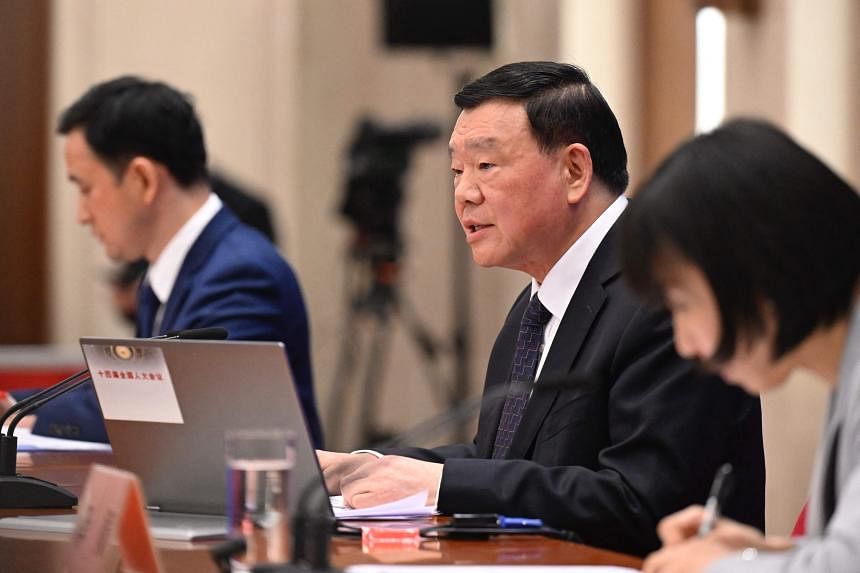Tech
‘No one can put a stranglehold on us,’ says Chinese official on global tech race

BEIJING – China says it is capable of developing its own cutting-edge technologies, in a veiled warning that sanctions and measures to decouple or de-risk from the country would not work.
“No one can put a stranglehold on us for any known technology,” Mr Lou Qinjian, spokesman for the National People’s Congress, told reporters on the eve of the opening of the top legislature’s annual session.
“It’s just a matter of time before we develop it,” he added at the press briefing.
Mr Lou was responding to a local reporter’s question about China’s view on the increasingly intense competition between major countries in high-tech areas such as 5G, semiconductor chips and artificial intelligence.
The reporter pointed out that some countries – without naming any – have resorted to moves such as sanctions, de-risking and decoupling to stymie China’s rise as the rivalry hots up.
Mr Lou said that while China “would like to work with all countries to advance basic research”, the country is ready to go it alone if necessary.
Using the example of how China had to develop its own satellite navigation system after collaboration with other countries stalled, he said the country had to “make the decision of relying on its own efforts”.
China and the European Union had in 2003 signed an agreement on developing satellite navigation together, among other collaborations, but that relationship soured over time with growing differences in trade, human rights and technology.
“Now, after nearly 30 years of unrelenting efforts to make breakthroughs, the Beidou satellite navigation system has become widely applied around the world,” Mr Lou said.
The home-grown technology has also become “a cornerstone for the country’s economic and social development”, powering many sectors, he added.
Beidou “fully demonstrates that as long as we work hard to build on strengths, there is no difficulty that we cannot overcome”, he said.
“The key is to redouble efforts on the creation, application and protection of intellectual property in science and technology.”
Mr Lou pointed out that over the past year, China has been passing regulations and laws to develop its high-tech sector, including one of the world’s most detailed guidelines on governing AI.
Beidou is seen as a formidable rival to the Global Positioning System, or GPS – the world’s oldest and most widely used satellite navigation system – which is owned by the US government and run by the country’s Space Force.
The GPS was originally developed for military purposes such as missile guidance and drone operations, but is now increasingly used by civilians in their everyday lives.
In November 2023, the International Civil Aviation Organisation (ICAO) recognised Beidou as one of its standards, which will allow the Chinese technology to provide navigation services for civilian flights globally, among other uses.








